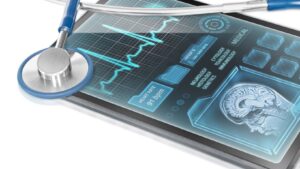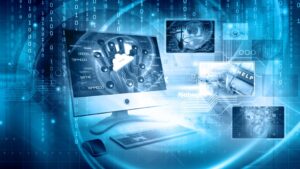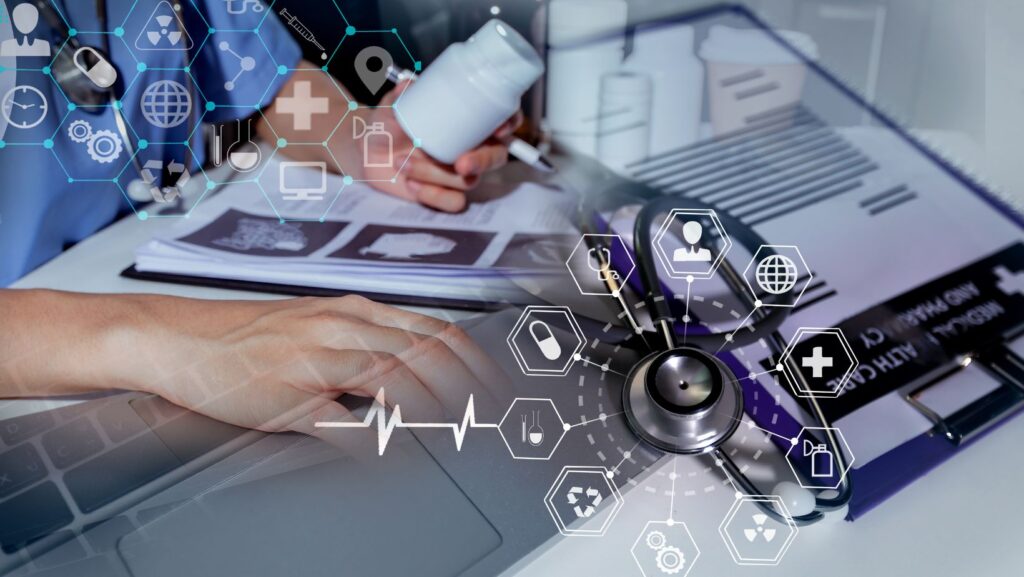In the rapidly evolving world of healthcare, technology continues to play a pivotal role in shaping how care is delivered and experienced. From telemedicine to AI-driven diagnostics, the latest health tech trends are revolutionizing patient care, making it more accessible, personalized, and efficient. As these innovations gain momentum, they not only promise to enhance healthcare delivery but also to transform the very nature of medical practice.
Health Tech Trends
Building on the transformative impact of technology in healthcare, the following sections delve into specific advancements in wearable technology and artificial intelligence, highlighting their roles in enhancing patient care and medical practice efficiency.
Wearable Technology Advancements
 Wearable technology continues to advance, integrating more comprehensive health monitoring capabilities. Devices now track a wider range of health metrics, including heart rate variability, blood oxygen levels, and sleep patterns. For example, smartwatches from companies like Apple and Fitbit now feature ECG apps, which monitor heartbeat patterns to detect atrial fibrillation, a common heart arrhythmia. These tools make it easier for users to stay informed about their health status and share vital information with their healthcare providers promptly.
Wearable technology continues to advance, integrating more comprehensive health monitoring capabilities. Devices now track a wider range of health metrics, including heart rate variability, blood oxygen levels, and sleep patterns. For example, smartwatches from companies like Apple and Fitbit now feature ECG apps, which monitor heartbeat patterns to detect atrial fibrillation, a common heart arrhythmia. These tools make it easier for users to stay informed about their health status and share vital information with their healthcare providers promptly.
Artificial Intelligence in Healthcare
Artificial intelligence (AI) in healthcare is revolutionizing diagnostic processes and patient care management. AI algorithms are increasingly used to analyze complex medical data, leading to faster and more accurate diagnoses. For instance, Google Health’s AI model helps detect breast cancer more accurately than traditional methods. Additionally, AI-powered virtual health assistants provide personalized advice and support, ensuring patients receive timely care instructions.
Impact of Remote Monitoring Tools on Patient Care
Remote monitoring tools have redefined the approach to patient care by providing continuous health monitoring and real-time data analytics. These advancements offer substantial benefits, improving both patient outcomes and healthcare workflows.
Enhancements in Telehealth
 Telehealth has expanded rapidly, incorporating advanced remote monitoring tools that enable healthcare providers to offer better care from a distance. This technology allows for real-time communication between patients and physicians, facilitating immediate feedback and adjustments to treatment plans if health metrics deviate from normal ranges. For instance, telehealth platforms now integrate tools for monitoring chronic conditions, such as diabetes and heart diseases, which can alert medical staff when a patient’s readings become abnormal, prompting timely intervention.
Telehealth has expanded rapidly, incorporating advanced remote monitoring tools that enable healthcare providers to offer better care from a distance. This technology allows for real-time communication between patients and physicians, facilitating immediate feedback and adjustments to treatment plans if health metrics deviate from normal ranges. For instance, telehealth platforms now integrate tools for monitoring chronic conditions, such as diabetes and heart diseases, which can alert medical staff when a patient’s readings become abnormal, prompting timely intervention.
Additionally, these technologies improve mental health care access. Therapists and psychiatrists use telehealth for routine consultations and assessments, ensuring continuous support and monitoring for mental health conditions even without in-person visits. This method not only ensures safety during emergencies like the COVID-19 pandemic but also supports individuals in remote or underserved areas who may lack access to traditional health services.
Wearable Devices for Continuous Health Tracking
 Wearable devices have become instrumental in the realm of health technology, enhancing patient care by constantly tracking various health metrics. Devices like smartwatches and fitness trackers are now equipped with sensors that monitor heart rate variability, blood oxygen levels, and even stress levels, offering insights into the user’s overall health. These devices connect seamlessly to smartphones and other digital platforms, sending alerts to both users and healthcare providers if the data indicates potential health issues.
Wearable devices have become instrumental in the realm of health technology, enhancing patient care by constantly tracking various health metrics. Devices like smartwatches and fitness trackers are now equipped with sensors that monitor heart rate variability, blood oxygen levels, and even stress levels, offering insights into the user’s overall health. These devices connect seamlessly to smartphones and other digital platforms, sending alerts to both users and healthcare providers if the data indicates potential health issues.
For example, newer models of smartwatches have functionalities like ECG apps and fall detection, which are critical for patients with heart conditions or elderly individuals. This continuous monitoring ensures that any anomalies are addressed promptly, significantly reducing emergency incidents and improving long-term health outcomes. Additionally, this constant flow of data provides a comprehensive view of a patient’s health over time, allowing for a more tailored and effective treatment approach.
Challenges and Opportunities in Health Technology
The rapid evolution of health technology presents both challenges and opportunities. As the landscape of medical practice is reshaped by these innovations, healthcare professionals must adapt to new tools and methodologies that require ongoing education and adjustment. Patients too are tasked with navigating these technologies to take an active role in managing their health. However, the benefits like improved accessibility and efficiency in healthcare delivery hold immense promise for the future of medicine.

